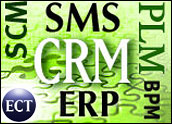
You can possess a business card that says you’re the boss, or be promoted to a position that gives you control and authority over other people, but that doesn’t necessarily make you a leader.
The definition of a true leader is someone who gets the job done, along with the efforts of other people who gladly and confidently follow. Notice that there are a couple of parts to that statement. I know of business leaders who get the job done along with the efforts of their people, but their people don’t gladly and confidently follow them. In fact, a lot of bosses try to lead through fear and intimidation. That’s not the sign of a good leader. If you had to work for a boss like you, would you quit?
Loyalty Starts at the Top
A toxic work environment is usually created at the top. Not that the newest people in a company couldn’t have a major impact on creating a healthier, happier and friendlier environment, because they can and they do. But to cultivate a culture that is nice and therefore feels good, even to customers, true leadership must come from the top.
Suppose you’re the boss. Even if you dug a tunnel from your house to your work, and came up through a hole in your closed and locked office, the staff would still know the boss was in the building. Why is this important to understand and accept?
We all agree that happy customers are loyal because they’re serviced and taken care of by happy employees, and happy employees generally have happy bosses. If you want to create a fun and happy atmosphere, which we all know will translate into more profitability, then it’s necessary that the mood, the feeling and the theme for the day come from the top. As Matt Weinstein suggests in his book Managing to Have Fun, if you want to offer service with a smile, make sure you give everyone in your company something to smile about.
Trickle-Down Effect
Let’s create a scenario to make this point. Again, let’s say you’re the boss, and you own a store with hundreds of employees who service thousands of customers. Let’s say you come to work one day, and you happen to be in a very good mood, but you also happen to be very busy, with a lot on your plate. You pull into the parking lot, walk into your building, pass by your hundreds of employees and customers, go straight upstairs to your office and close the door.
Now, granted, you’re in a very good mood, but what will the buzz and the whispering be in your building within about five minutes? “The boss is in a bad mood. Don’t go near the boss. Everyone lay low today.” With that mood in your store, what will happen to staff morale? What will happen to creativity? What will happen to teamwork? What will happen to profits?
To be a true leader, you must own not only the reality of how things are, but also people’s perception of how things are. It’s not enough for you to be in a good mood. A staff member could come up to my office and say, “Hey Winn, the whole company thinks you’re in a bad mood.” I could reply, “Well, I’m not. I’m in a great mood. That’s their problem if they think I’m in a bad mood.” But where will that get me?
Exuding Enthusiasm
If people don’t know you’re in a good mood, or they assume you’re not in a good mood, you still have work to do. As a leader, you must own the perception.
When I arrive at work each day, it takes me at least thirty minutes to get to my office. Why? Because I visit every square inch of my facility to show my smiling, happy face to staff and customers, and to hug as many people as I can. I visit each office, every classroom, the staff lunch room, the laundry room, the sales area — everywhere. I want people in that building to know I’m in a great mood, I love coming to work, I love my job, and I appreciate each one of them. And on those days when I don’t feel that way, I fake it.
If people at work aren’t nice, especially the boss, it’s almost guaranteed that the staff won’t be having fun. When the staff isn’t having fun, they don’t laugh together. And when they don’t laugh together, creativity goes down and absenteeism skyrockets. It’s that simple.
Winn Claybaugh, author of Be Nice (Or Else!) with foreword by CNN’s Larry King, has worked in the beauty industry since 1983. He is the National Motivational Expert for John Paul Mitchell Systems and the founder of Paul Mitchell The School, with several locations throughout the U.S. Visit Winn at www.BeNiceOrElse.com and sign up for the free monthly Be Nice (Or Else!) Newsletter.













































